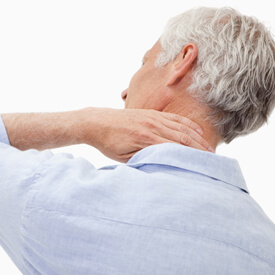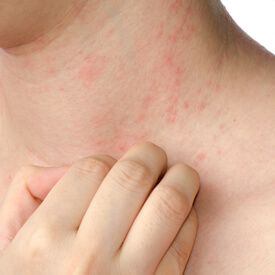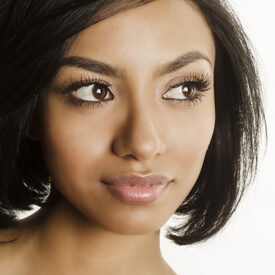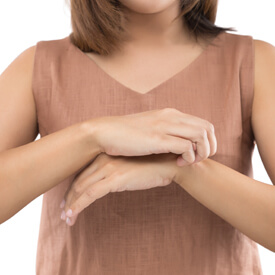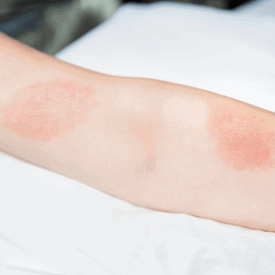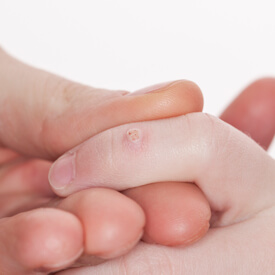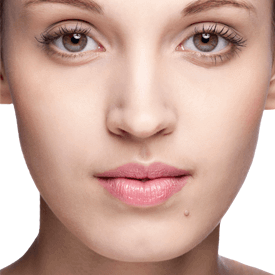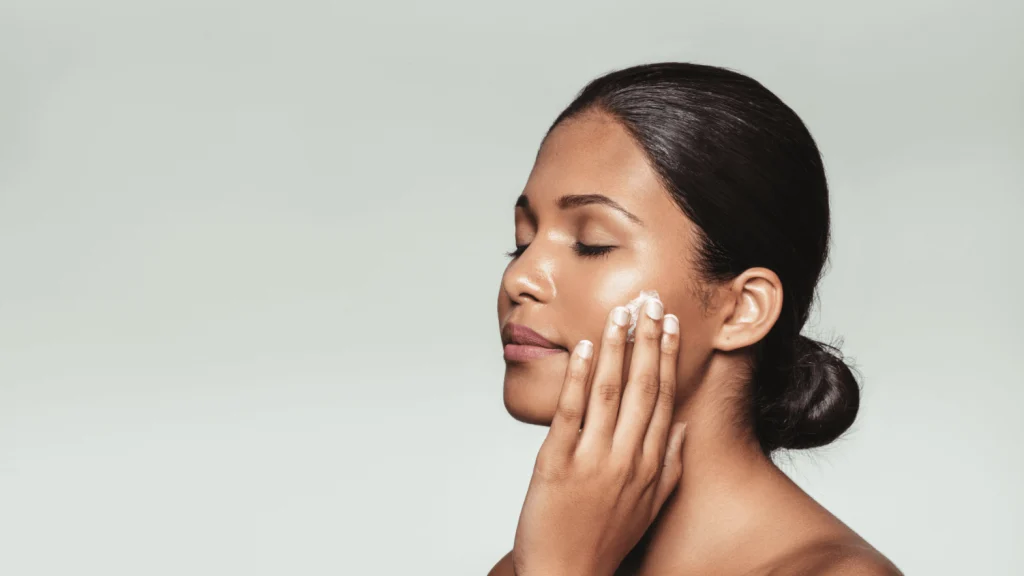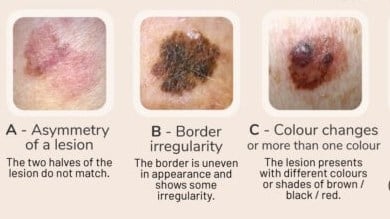Texture improvement, collagen production, minimized wrinkles, and anti-inflammatory properties are benefits of using retinoids!
Rosacea in Fort Washington, PA
ABOUT ROSACEA
Rosacea, a skin condition that causes the skin to appear red and inflamed, typically presents around the nose and cheeks. It can often be mistaken for other skin conditions, but it can be treated and managed if diagnosed properly. Dr. Aradhna Saxena, medical director of the Dermatology and Skin Cancer Institute, uses many advanced solutions, including laser therapy, to lighten the skin and reduce the symptoms of this chronic disease. Rosacea can occur in almost anyone, but it’s most common among middle-aged to older women with fair skin. This is a skin condition with no real cure, but it can be managed. If left untreated, it can worsen over time, causing symptoms to return and flare up for days or weeks at a time. At your consultation at our Fort Washington, Lansdale, or Willow Grove location, Dr. Saxena or a member of her professional medical team will assess your skin for rosacea and develop a custom treatment plan to help keep the symptoms at a minimum.
CAUSES
While the exact cause of rosacea is unknown, most dermatologists, including Dr. Saxena, believe that it’s caused by a combination of hereditary and environmental factors. People of Celtic or Scandinavian ancestry seem to have a higher incidence of rosacea. Patients usually have other family members who suffer from either rosacea or severe acne. Also, people who are prone to bad acne have a higher risk of developing rosacea. Scientists believe that immune system overreactions can cause rosacea, especially when the immune system overreacts to a certain bacterium or mite. These theories, however, haven’t been fully proven.
There are a large number of factors that can aggravate rosacea by increasing the blood flow to the surface of the skin. These include alcohol, spicy foods, hot beverages, sunlight, extreme temperatures, hot baths or showers, stress, embarrassment or anger, strenuous exercise, and certain medications.
SYMPTOMS
Symptoms of rosacea can vary from mild to severe. The tell-tale sign of rosacea is facial redness; in most patients, the central portion of the face is the most noticeably red. The small blood vessels of the nose and cheeks can swell and become visible. Other symptoms include red and swollen bumps on the face that look similar to acne. Sometimes, the bumps can be pus-filled. The skin can also feel hot and tender to the touch. Approximately half of rosacea sufferers have eye problems, such as eye irritation, dryness, and reddened, swollen eyelids. In rare cases, a patient’s nose will appear enlarged, because rosacea can cause the skin around the nose to thicken, which results in a bulbous appearance.
TREATMENT OPTIONS
Though there is no cure for rosacea, there are a number of treatment options available, including antibiotics that help with inflammation. You can use the medication in a pill form or as a cream, lotion, or gel. Pills tend to be more effective in the short-term but can create more side effects. If antibiotics aren’t effective, acne drugs such as isotretinoin have proven to work for some patients. Surgery might be required in cases where the symptoms become permanent, such as enlarged blood vessels or redness that won’t go away with other treatments. Laser surgery or electrosurgery can be used to reduce the appearance of blood vessels and remove excessive tissue buildup around the nose.
RESTORE YOUR SELF-ESTEEM
Rosacea has both physical and emotional symptoms, as patients are often self-conscious in public and avoid social situations because of the redness. If you believe you have rosacea, please call the Dermatology and Skin Cancer Institute to schedule a consultation with Aradhna Saxena, M.D. or a member of her team so that you can put your best face forward today. Our exceptional team is knowledgeable about cutting-edge treatments that offer hope and help.


